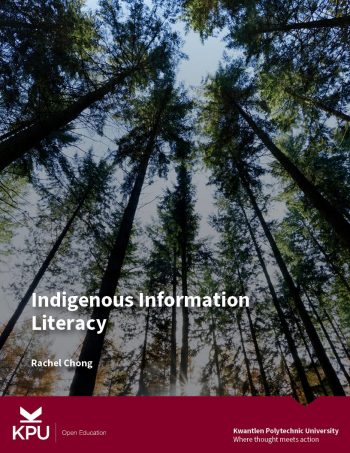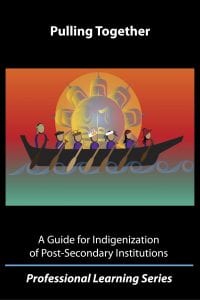
 Indigenous Information Literacy
Indigenous Information Literacy
 Pulling Together: Indigenous Guides
Pulling Together: Indigenous Guides
Respectful research when speaking with Elders and Knowledge Keepers is sensitive. We are following other libraries' recommendations for templates and example citations as well as the APA manual,
Please watch this presentation on Decolonizing Citation by Bronwen McKie to understand the relationship between colonization and citations.
The following examples are from, Referencing Indigenous Elders and Knowledge Keepers, created by Lorisia McLeod (James Smith Cree Nation) and NorQuest Elders, NorQuest College
Cite personal communications with Elders and Knowledge Keepers in both your in-text citations and in your reference list.
More than personal communication Citation templates for Elders and Knowledge Keepers.
Format:
Name of Elder/Knowledge Keeper with year of communication (Follow the same guidelines that you would use for a paraphrase or direct quote)
Example:
Delores Cardinal described the nature of the... (2018).
OR
The nature of the place was... (Cardinal, 2018).
Format:
Last name, First initial., Nation/Community. Treaty Territory if applicable. Where they live if applicable. Topic/subject of communication if applicable. Personal communication. Month Date, Year.
Example:
Cardinal, D., Goodfish Lake Cree Nation. Treaty 6. Lives in Edmonton. Oral
teaching. Personal communication. April 4, 2004.
Kwantlen Polytechnic University has provided information regarding protocol guidelines that are customary in Coast Salish traditions.
Always be respectful and aware of the injustices that Elders/Knowledge Keepers may have lived. They may be reluctant to share their information after having had their information and knowledge taken from them without their consent.
 More Than Personal Communication: Templates For Citing Indigenous Elders and Knowledge Keepers
More Than Personal Communication: Templates For Citing Indigenous Elders and Knowledge Keepers
 More Than Personal Communication Citation templates for Elders and Knowledge Keepers (YouTube)
More Than Personal Communication Citation templates for Elders and Knowledge Keepers (YouTube)
 Citing Indigenous Elders & Knowledge Keepers
Citing Indigenous Elders & Knowledge Keepers
 Personal Communications: Indigenous Peoples
Personal Communications: Indigenous Peoples